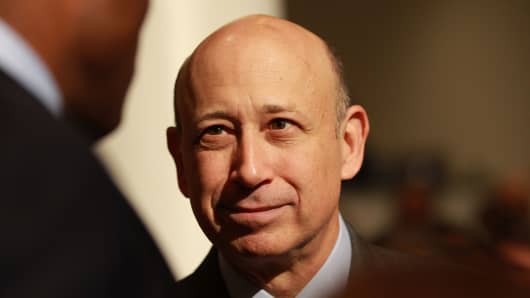The Volcker Rule...contains the following prohibition:
(1) PROHIBITION.—Unless otherwise provided in this section, a banking entity shall not—
(A) engage in proprietary trading; or
(B) acquire or retain any equity, partnership, or other ownership interest in or sponsor a hedge fund or a private equity fund.
The only way that non-fund principal investing could be prohibited by the Volcker Rule, then, is if it’s considered “proprietary trading” under (A).
So now we have to go look at the definition of “proprietary trading,” which is located in § 619(h)(4):
(4) PROPRIETARY TRADING.—The term ‘proprietary trading’, when used with respect to a banking entity . . . , means engaging as a principal for the trading account of the banking entity . . . in any transaction to purchase or sell, or otherwise acquire or dispose of, any security, any derivative, any contract of sale of a commodity for future delivery, any option on any such security, derivative, or contract, or any other security or financial instrument that the appropriate Federal banking agencies, the Securities and Exchange Commission, and the Commodity Futures Trading Commission may, by rule as provided in subsection (b)(2), determine. [emphasis mine]
OK, so only transactions for the “trading account” are considered proprietary trading. Would non-fund principal investments be transactions for the trading account? Well, let’s look at the definition of “trading account,” which is found in § 619(h)(6):
(6) TRADING ACCOUNT.—The term ‘trading account’ means any account used for acquiring or taking positions in the securities and instruments described in paragraph (4) principally for the purpose of selling in the near term (or otherwise with the intent to resell in order to profit from short-term price movements), and any such other accounts as the appropriate Federal banking agencies, the Securities and Exchange Commission, and the Commodity Futures Trading Commission may, by rule as provided in subsection (b)(2), determine. [emphasis mine]
Principal investing is, by definition, medium- to long-term, which means that principal investments would NOT be transactions for the trading account.
So in sum, non-fund principal investments are not prohibited by the Volcker Rule because they are by definition medium- to long-term, which means they are not transactions for the “trading account,” and thus not considered “proprietary trading” under the Volcker Rule.
That's pretty straight-forward. Volcker prohibits short term trading. It doesn't prohibit buying stakes in companies with an eye to the long term.
Are regulators reading the law as doing the opposite? That's what Reuters implies when it says:
One big area of concern for Goldman is that regulators who are interpreting the Volcker rule will severely limit the amount of time a bank can hold a security or derivative. Positions held long term can be backstairs bets on markets.
If Goldman is "resisting" this interpretation, it's not resisting Volcker. It's just reading Volcker.



